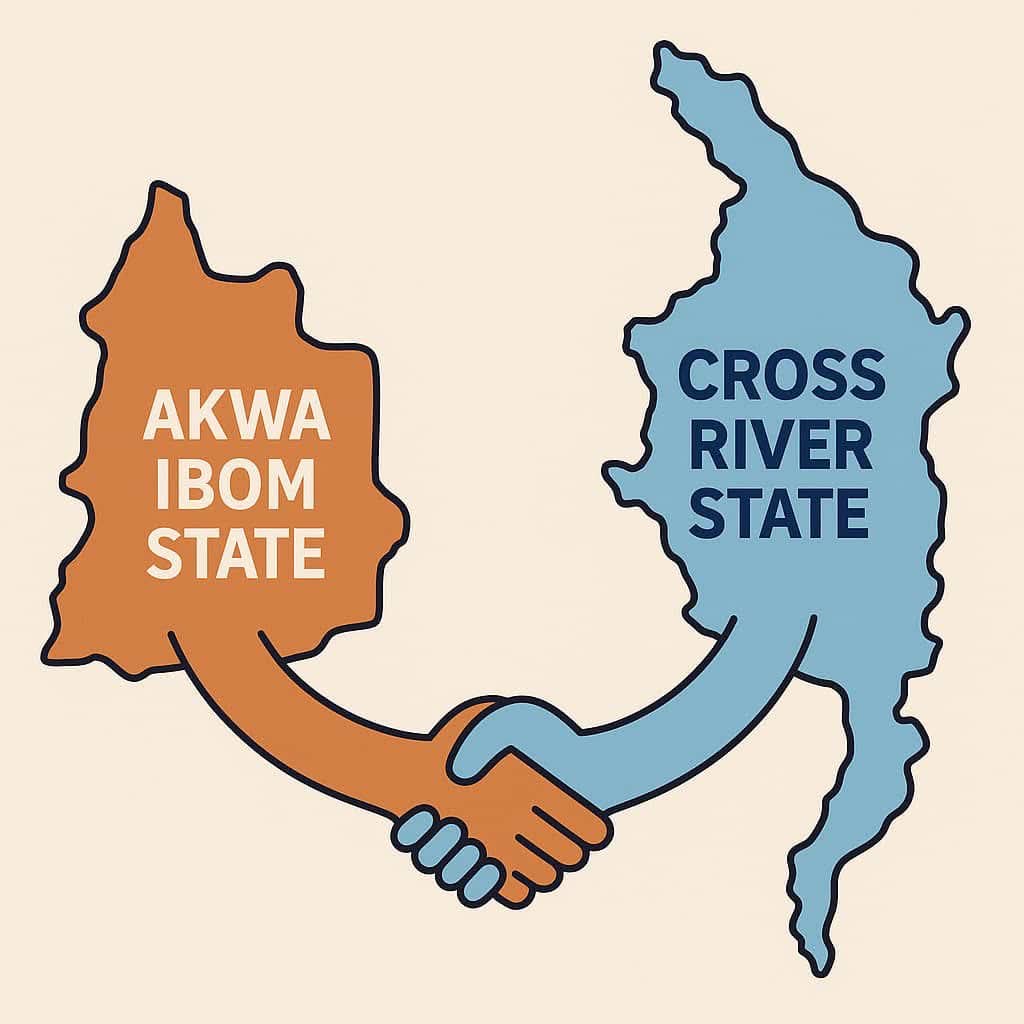On the Disputed 76 Offshore Oil Wells Between Akwa Ibom and Cross River State
Dated: 18th August 2025
1. Overview of the Current Situation
In recent weeks, the Government of Cross River State has renewed its campaign concerning the 76 offshore oil wells previously awarded to Akwa Ibom State by the Supreme Court rulings of 2005 and 2012. Meanwhile, the Akwa Ibom State Government maintains that those decisions were fair and final, citing the 2002 International Court of Justice (ICJ) ruling ceding Bakassi to Cameroon as justification for stripping Cross River of its maritime boundary and its rights as a littoral state. CRSCF recognizes the legal finality of those decisions but believes there is now compelling new evidence that fundamentally undermines the basis upon which the judgments were anchored.
2. Legal Foundations and Recent Developments
The 2005 Supreme Court decision (Suit No. 124/1999) upheld Cross River’s claim to 24 inland villages but dismissed its claim over the estuary that contains the contested oil wells. In 2012, the Court reaffirmed that Cross River had lost its littoral status, citing Bakassi’s cession to Cameroon, thereby ruling the oil wells belonged to Akwa Ibom (Per Adekeye, JSC and Rhodes ‑Vivour, JSC). CRSCF’s key contention is that the 2012 judgment was premised on an erroneous assumption that Cross River is no longer a littoral state—a conclusion now countered by new geospatial data.
3. New Evidence & Mapping Survey
Cross River State now possesses the Cross River Water Map Survey, which irrefutably shows a coastline extending eastward from Goldie Creek to Dayspring, with multiple identifiable maritime communities—Esuk Mba, Essighi, Akpangkanya, and others—retaining direct access to the Atlantic Ocean. This coastline, along with multiple river outlets, demonstrates Cross River’s continuing littoral status. The Forum asserts that this evidence was not available during prior litigation. It is relevant and material, capable of altering the Supreme Court’s 2012 conclusion. Its emergence qualifies as “new evidence” under Nigerian jurisprudence.
4. Identifying Weaknesses in Akwa Ibom’s Position
While Akwa Ibom’s position emphasizes the finality of judicial decisions, it omits any discussion of possible misrepresentation or exclusion of factual cartography at trial. Their aggressive media posture ignores the principle that justice delayed is not justice denied—especially where fraud or misleading evidence is alleged. By dismissing legal reconsideration, Akwa Ibom risks perpetuating institutional injustice, not resolving it.
Besides, the RMAFC and NBC sending a team to demarcate the boundary between Akwa Ibom and Cross River was premature. Because the Cameroon-Nigeria Mixed Commission, created by the Green Tree Agreement between Nigeria and Cameroon was yet to delineate the international maritime boundary between the two countries; which is the reason the supreme Court in 2005 refused to delve into the issue of the maritime boundary between cross River and Akwa Ibom states. As at 2012 the judgment in the second suit was delivered, the Mixed commission didn’t conclude on the maritime boundary between Nigeria and Cameroon. So whatever document Akwa Ibom presented at that time must have been obtained by a sleight of hand or misrepresentation
5. CRSCF’s Position and Proposed Actions
The Forum endorses a strategic, well-supported application for judicial review based on fresh and materially significant evidence—not for political posturing, but to reclaim Cross River’s maritime identity and derivation rights. We urge the National Boundary Commission (NBC) and the Revenue Mobilisation Allocation and Fiscal Commission (RMAFC) to reassess maritime boundaries and derivation formulae in light of new hydrographic data. CRSCF calls for structured dialogue facilitated by federal authorities, including the National Council of States, to negotiate not just the oil wells issue but also fair compensation, infrastructure investment (e.g. deep-sea port), and joint marine resource management.
6. Moral and Regional Imperatives
Cross River and Akwa Ibom share kinship, culture, and economic interdependence. Our pursuit of justice is not one of antagonism but of restoration. The coastline from Goldie Creek to Dayspring is unmistakably Cross River’s territory. To disregard that is to deny geography—and the justice it carries.
7. Call to Action
We urge President Bola Ahmed Tinubu, the Attorney ‑General of the Federation, and all federal oversight bodies to support a fair reassessment. We call upon the Akwa Ibom Government to refrain from denigrating the process. We ask civil society, the media, and our citizens to support this pursuit of truth and economic justice—not emotional rhetoric. Cross River state has a new compass. With verified maritime maps, deep legal precedent permitting review for fraud/new evidence, and a spirit of reconciliation, we believe we can chart a future that rectifies past injustice—peacefully, legally, and fairly.
Hon. Eyo Nsa Ekpo Esq
Signed for and on behalf of the Cross River South Consultative Forum (CRSCF)







